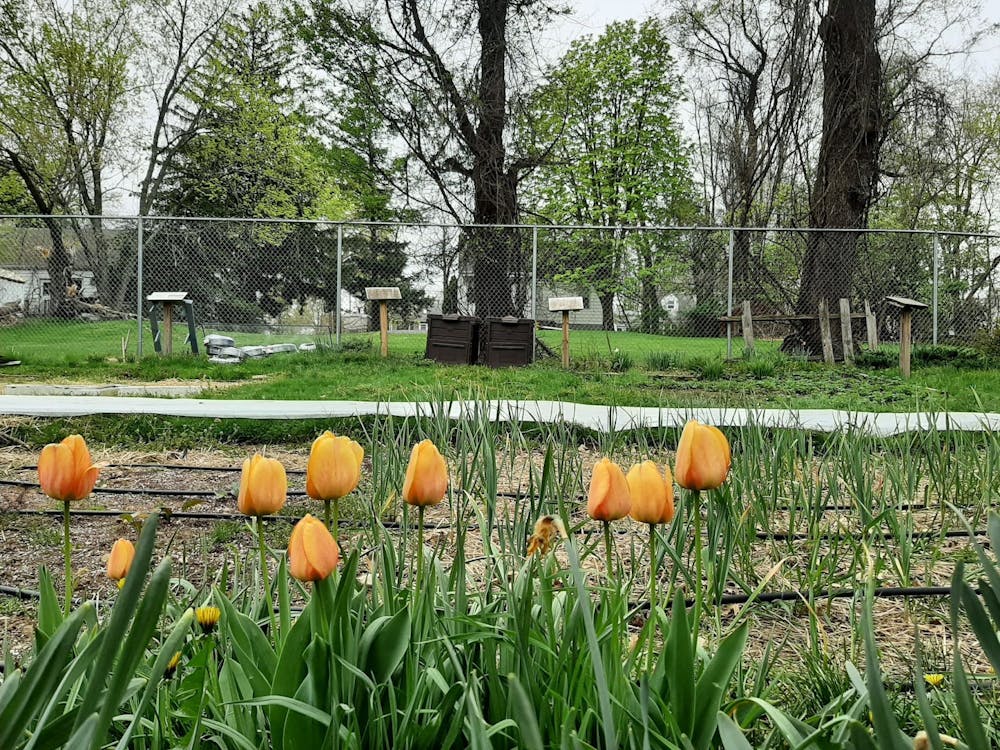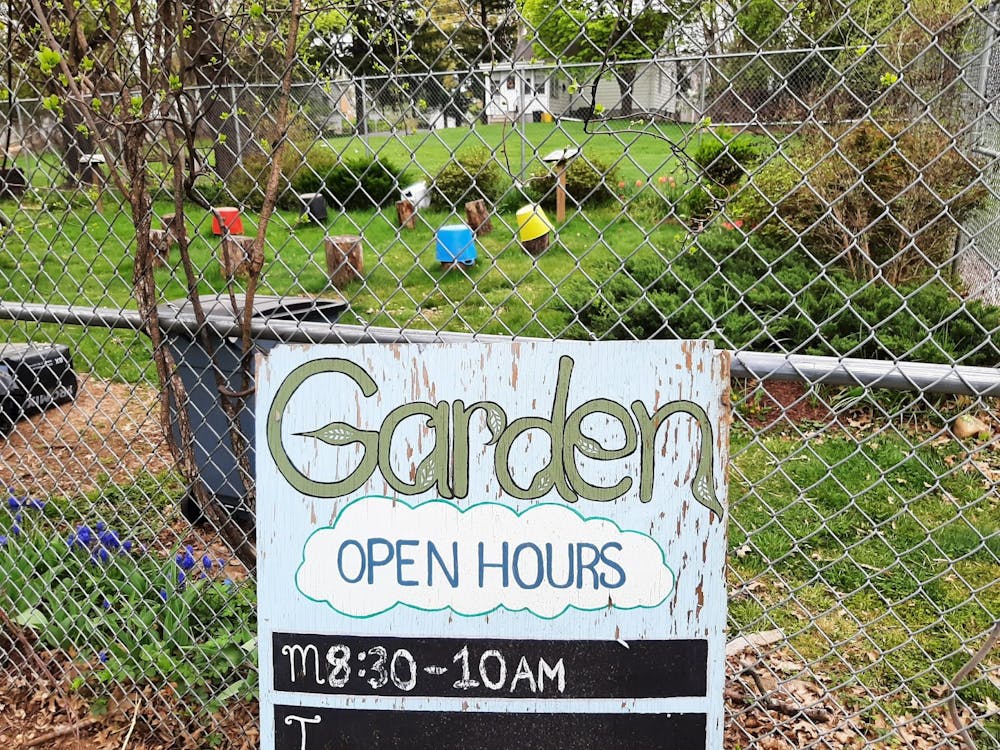Octavia Feliciano
Staff Writer
The work begins in the greenhouse on the third floor of the biology building. There, student and faculty volunteers tend to a wide variety of seedlings destined for the College’s Bonner Garden.
After the last frost date, sometime in mid to late April, a variety of peas, peppers and herbs will be the first to leave the greenhouse for the garden. When the weather grows warmer other crops like tomatoes will follow them.
With the arrival of spring comes the spring planting season, and a flurry of activity in the College’s campus garden. In the 12 years since students began the garden, volunteers have employed sustainable and environmentally friendly farming methods to grow a yearly crop they donate to the Mercer Street Friends Food Bank and the Trenton Area Soup Kitchen.
“Since the garden donates to a local soup kitchen and food bank, we try to get their input,” said Danielle Parks, the NJ Bonner Americorps food security assistant at the College, and one of the staff members who oversees the garden. “We want to know what the patrons of those sites would like to eat.”
Many of the garden’s volunteers are part of the Bonner Scholars Program, but all College students are welcome to volunteer at and spend time in the Bonner Garden.
“The students lead the garden year round, I just help them make things happen,” said Katherine Kahn, Bonner Scholars program manager, who helms the Bonner Environment and Food Security Division.
Freddie Hayeck, a senior interdisciplinary business administration major, is the garden’s senior Bonner site leader and has a large role in organizing efforts in the garden as a student volunteer.

In the 12 years since students began the garden, volunteers have employed sustainable and environmentally friendly farming methods to grow a yearly crop they donate(Octavia Feliciano/Staff Writer).
“We’re now starting to open up and prepare the garden itself for planting,” said Hayeck. “This involves weeding, adding soil and removing some of the hay we placed there to keep the soil nutrient-dense.”
The work in the greenhouse and the garden has gone smoothly so far this spring, though the garden has faced some difficulties in the past.
“We try to solve any problems in the garden through sustainable practices, learning from each other and researching,” said Emma Taff, a junior psychology major and a Bonner Scholar who regularly volunteers in the garden. “Ok, this didn’t grow, what can we do differently? What works best in our soil?”
This year, the garden is embarking on a couple of experiments. Volunteers in the garden are trying a couple of new varieties of okra and beans. They’re also planting corn for the first time.
The corn is part of an initiative to incorporate indigenous farming practices into the garden.
The corn, the other new plants and the garden's staple crops will soon be supported by a drip-irrigation system, a watering apparatus that is low-pressure and delivers water to plants slowly and steadily.
Parks submitted the proposal for the drip-irrigation system to the Environmental Sustainability Council at the College, and funding for it was approved.
“We’ll be able to use a fraction of the water we currently use to support the same amount of plants,” said Kahn.
The drip irrigation system was installed on April 22, Earth Day. The project proposal submitted by Parks estimates that installing the drip irrigation system will decrease the garden’s water consumption by about 60%, as the direct drip delivery will result in less water lost to evaporation, wind, or run-off.
In addition to conserving water, the drip irrigation system will benefit the productivity of the garden. Since it delivers water directly to the base of the plants, it minimizes weed growth and thus competition between weeds and crops.
“We like to think of ourselves as a demonstration garden for sustainable practices” said Kahn.
The drip irrigation system will contribute to making the garden a model for environmentally friendly practices. Sustainability efforts already underway include the garden’s decision to use no pesticides, their use of no-till farming methods that do not wear out the soil and their closed-loop composting system, which recycles much of the garden’s organic waste on-site for the health of future plants.
Some recents challenges the garden has faced include bugs and poor crop-yields. Last fall, the garden's potato crop did not yield much of a result, and in previous years, squash-bug infestations have affected the squash harvest.
Like other initiatives on campus, the garden and its productivity were affected by the pandemic.
“Gardening is a relaxing activity,” said Hayeck. “Iit’s meaningful work because food insecure populations oftentimes don’t have access to fresh produce, so we’re providing people with healthy alternatives. This was especially crucial during the pandemic when people lost their jobs and food insecurity increased.”
Even though following pandemic safety measures limited the garden’s yield during the previous academic year, it still produced more than 200 lbs of food to donate.
“I feel like a lot of students don’t even know that we have a garden,” Taff said. “It would be nice if they knew it was a place they could get more involved on campus.”
The garden is open to students to either volunteer — which they can do regularly or temporarily— or to simply enjoy the space.
“During the summer months, people are free to come out and look around, it is a communal area,” said Parks. “People can sit on the log seats, chat, do work, and read in a natural space.”







